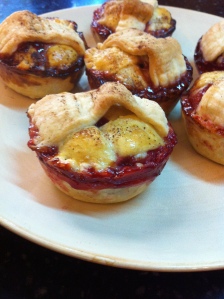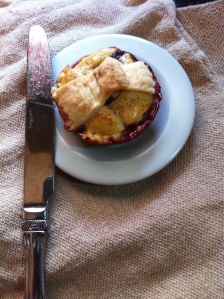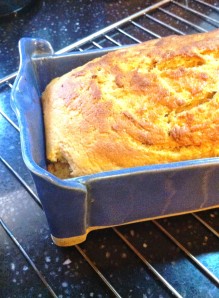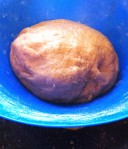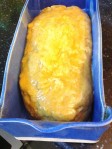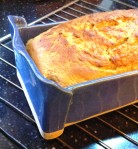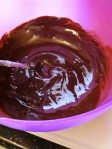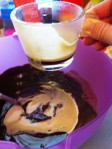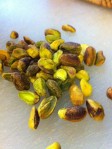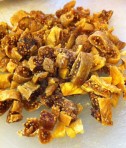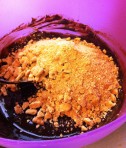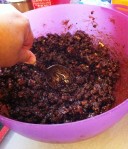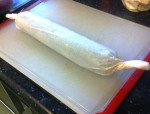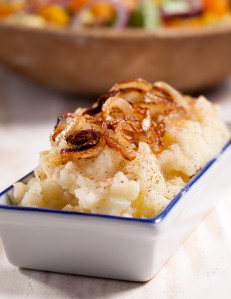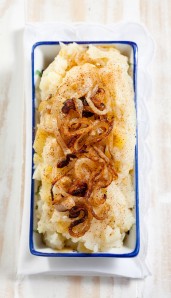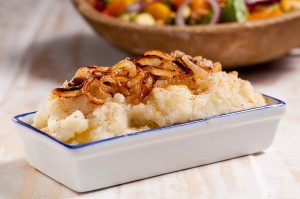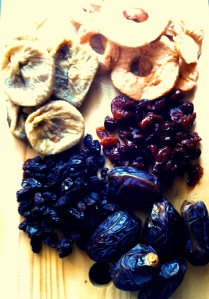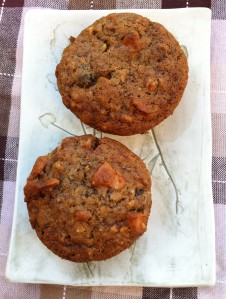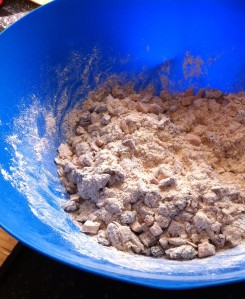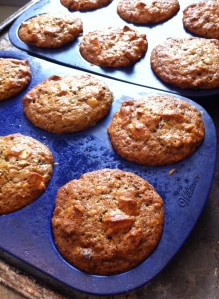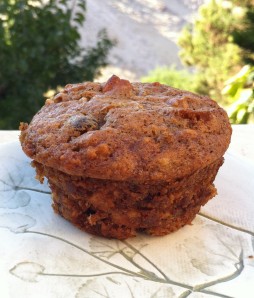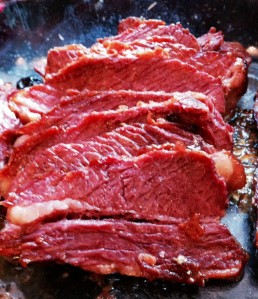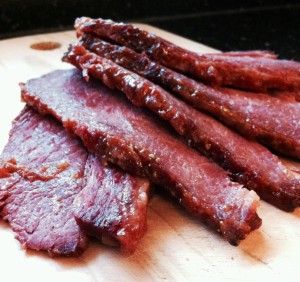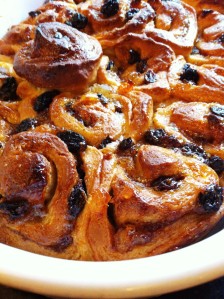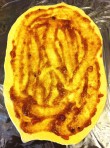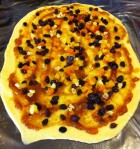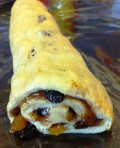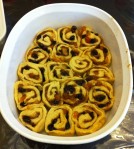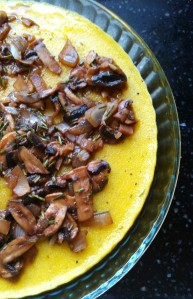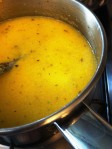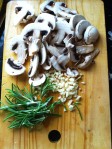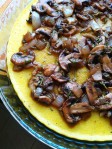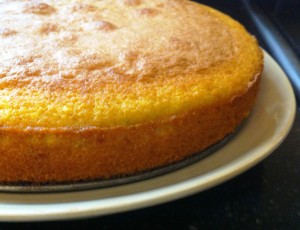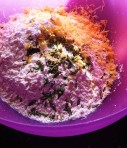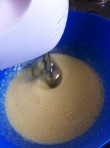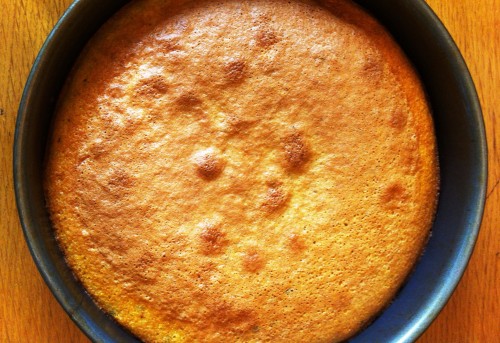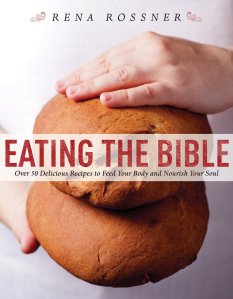I’ve been meaning to finish up my posts on the Book of Amos, but it’s been a crazy few weeks! Between all the PR for my Hebrew cookbook and Dutch cookbook (links here and here!), three TV appearances, two weeks I spent in New York meeting with editors and agents (for my own work, but also, yes, some cookbook related stuff) – I haven’t had time to breathe! So here is one new Amos recipe for you, one more to go, and after that, we will move on to the next book: Obadiah.
“Thus the Lord GOD showed me; and behold a basket of summer fruit. And He said: ‘Amos, what seest thou?’ And I said: ‘A basket of summer fruit.’ Then said the LORD unto me: The end is come upon My people Israel; I will not again pardon them any more.” – Amos 8:1-2
Summer Fruit Mini-Pie Baskets
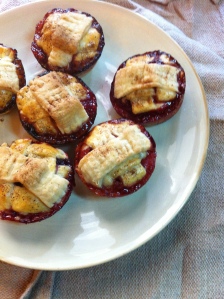
Crust:
2 1/2 cups (315 grams) all-purpose flour, plus more for dusting surfaces
2 tablespoons (15 grams) granulated sugar
1 teaspoon table salt
1 cup (225 grams, 8 ounces) unsalted butter, very cold
1/2 cup water, very cold
1 egg (to brush on the tops of each pie)
Filling:
2-3 cups of chopped summer fruit: peaches, plums, cherries
1 Tbsp. fresh lemon juice
1/2 cup granulated sugar
1/4 cup brown sugar
1/2 tsp. ground cinnamon
Pinch of nutmeg
Pinch of cardamom
3 tbs cornstarch
Mix dry ingredients together, cut butter into cubes, then mix into dry ingredients. Use your fingers or a pastry cutter until the mixture is crumbly and fully integrated, then slowly add the cold water until the dough holds together. Cover the dough in plastic wrap and refrigerate until the filling is ready.
Cut fruit into small cubes and mix with all the ingredients in a bowl.
Knead and flatten the dough and roll out on a flat surface until it’s 1/4 inch thick. Spray muffin tins with non-stick spray and cut out circles from the dough that will fit into each muffin tin and all the way up the sides (you might need to do a few practice circles until you get the size right). Place each circle in a muffin tin and press up the sides. Spoon filling into each muffin tin.
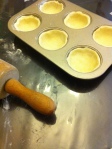
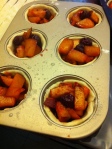
To make lattice-work top, roll out the remaining dough, then cut in long 1/2-inch strips with a knife. Weave the dough until your work surface is covered with a long woven strip. Cut circles out of the strip in a size that will nicely fit over the top of each muffin tin. Press the woven top of each mini-pie down to meet the dough on the bottom/sides by using a fork, make small indentations around the sides of each mini-pie with the fork that both presses the dough from the top to the sides, but also creates a nice decorative edge. You can roll out small strips of dough and twist and attach them to the top of each mini-pie to create a basket handle.
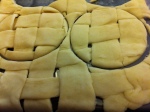
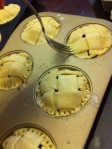
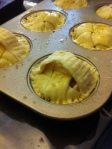
Brush tops of mini-pies with beaten egg, bake at 350 degrees F (180 degrees C) for 30 minutes, or until golden brown.
